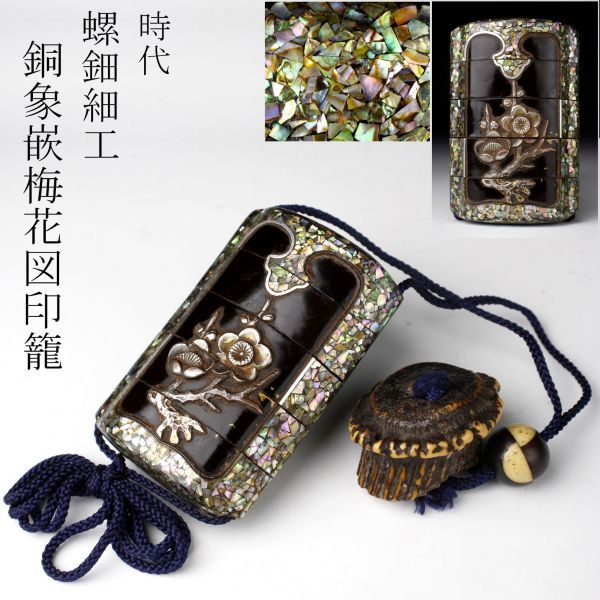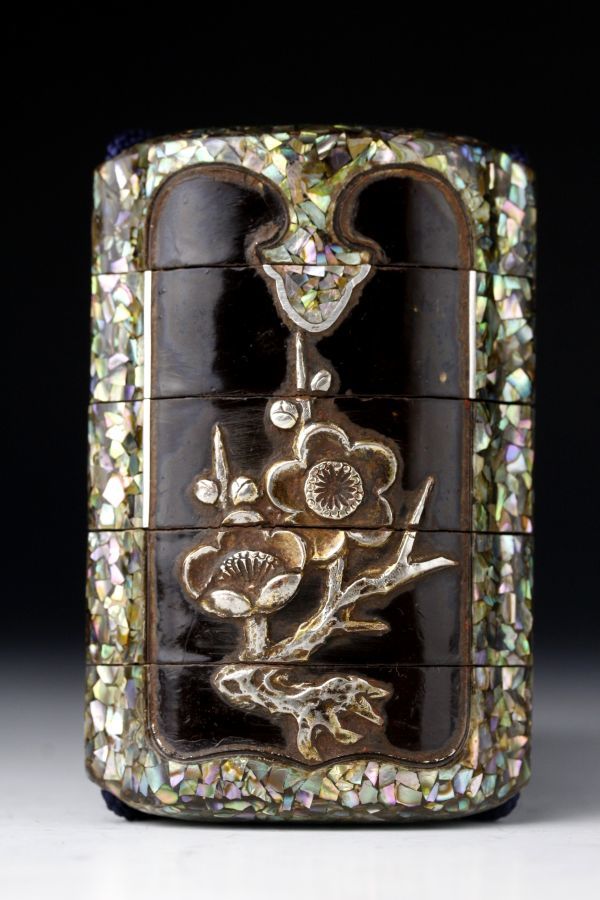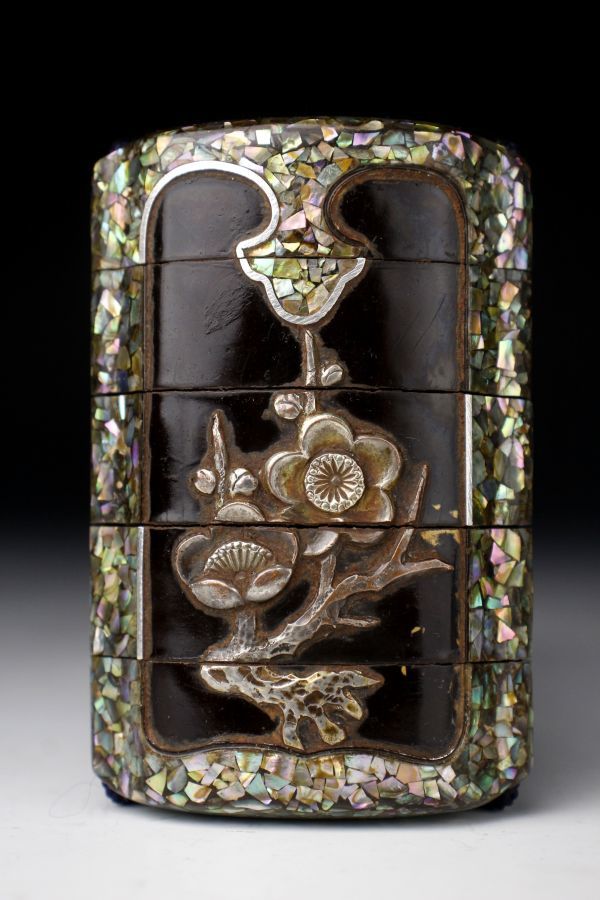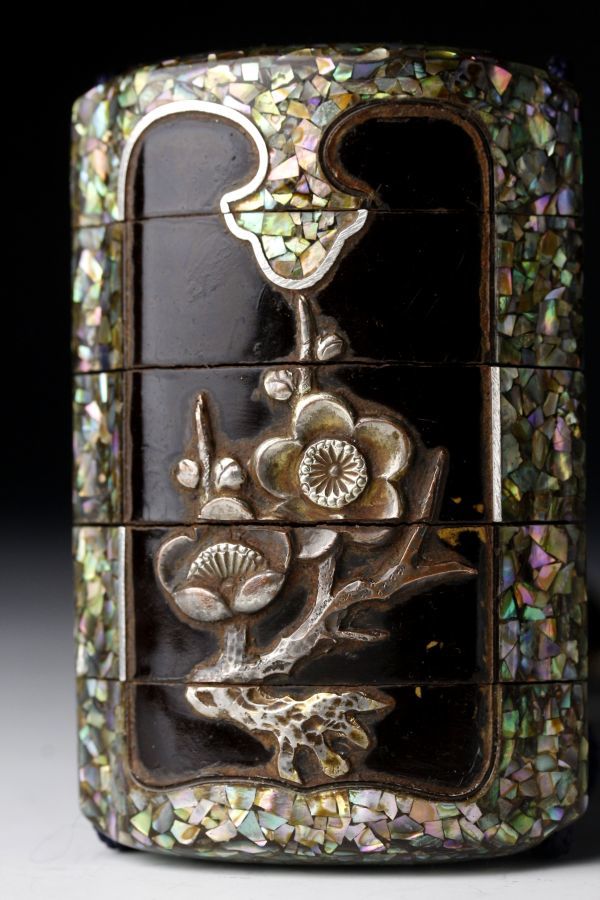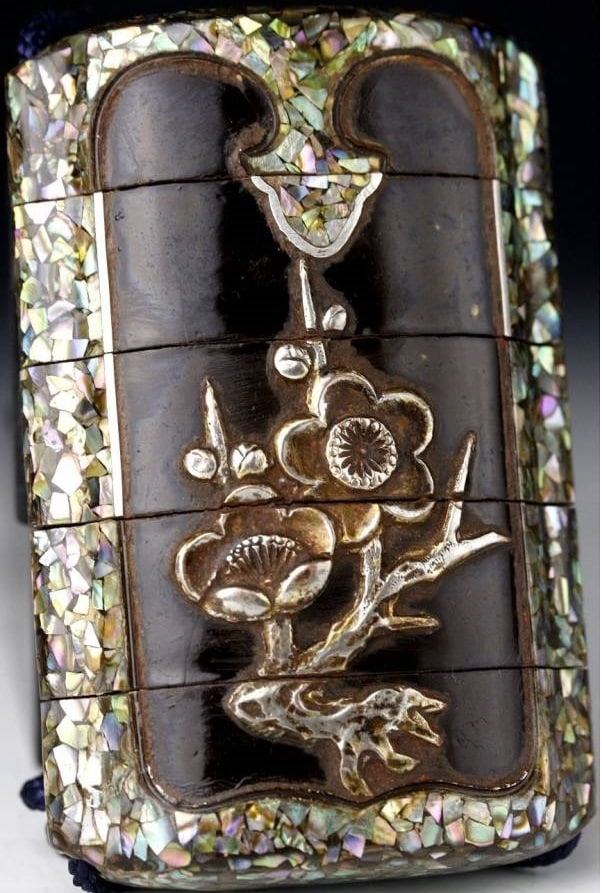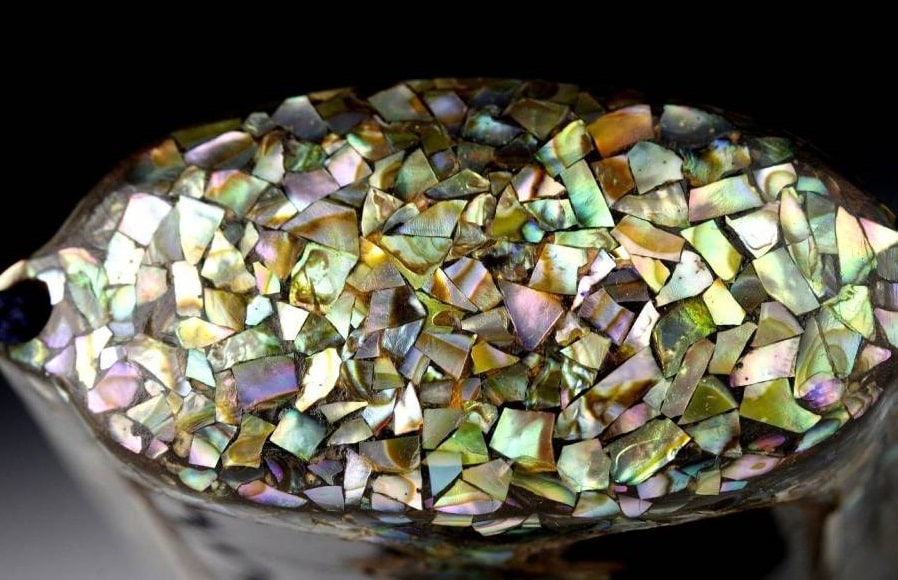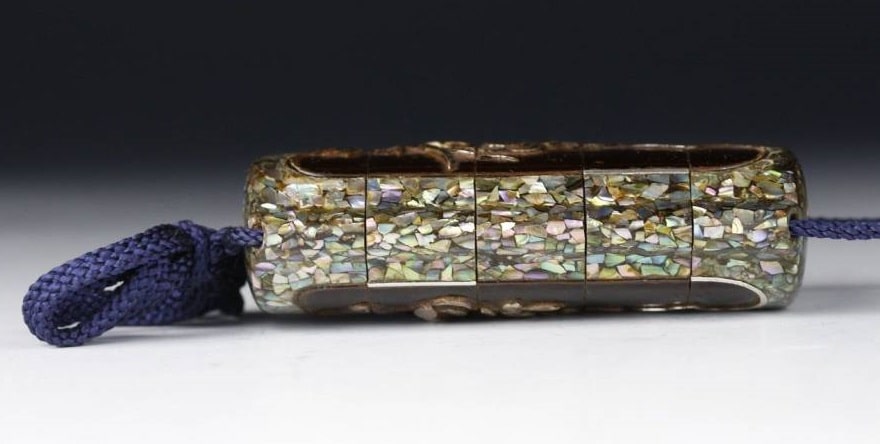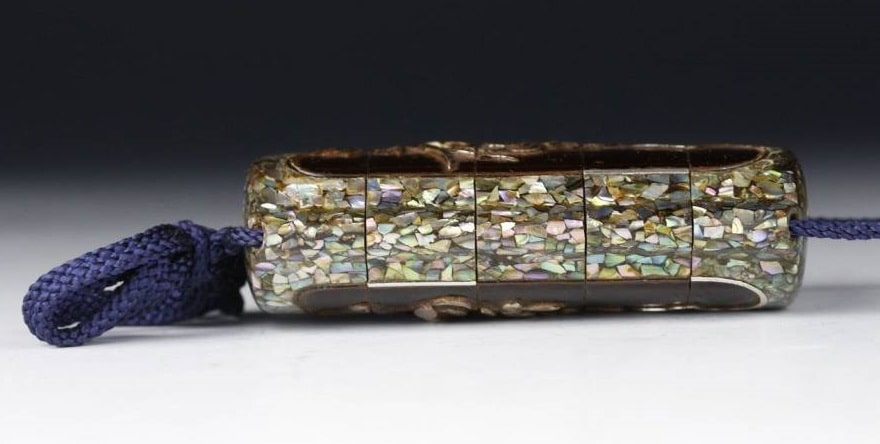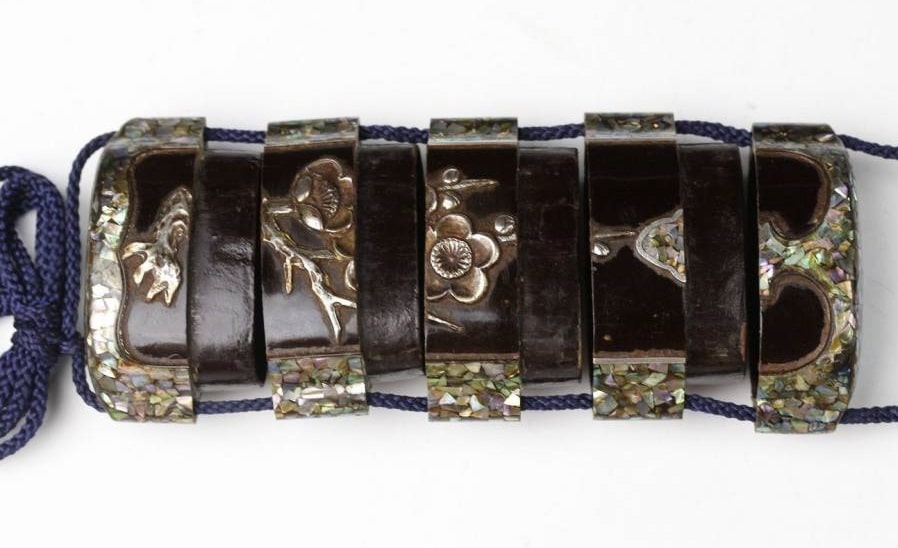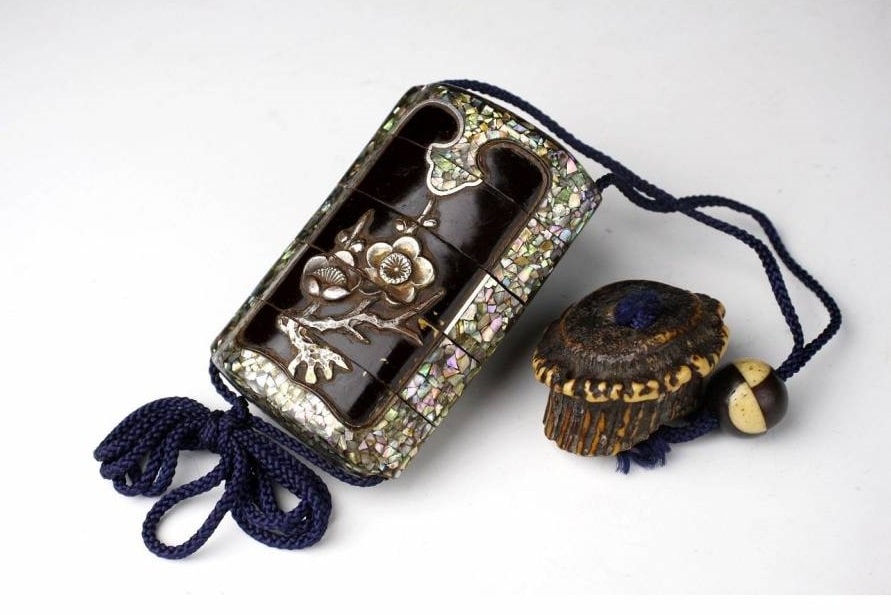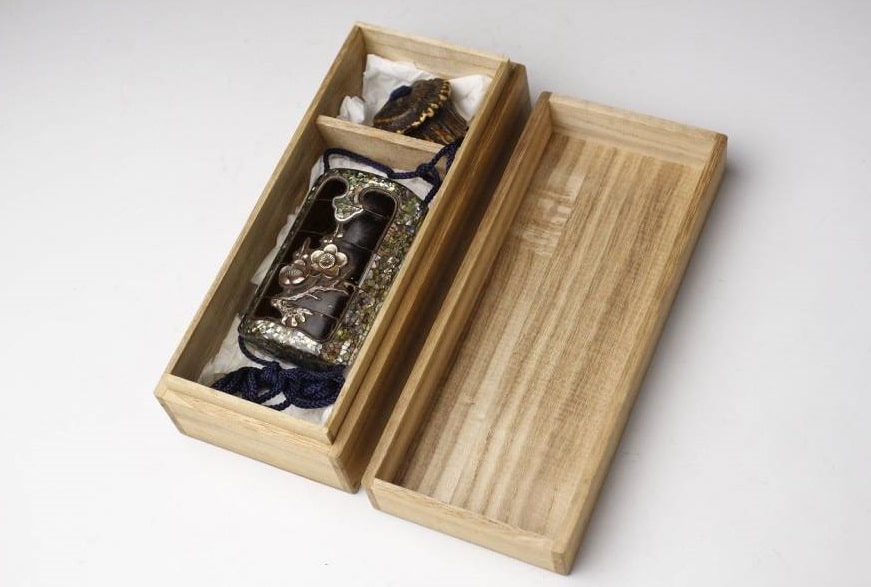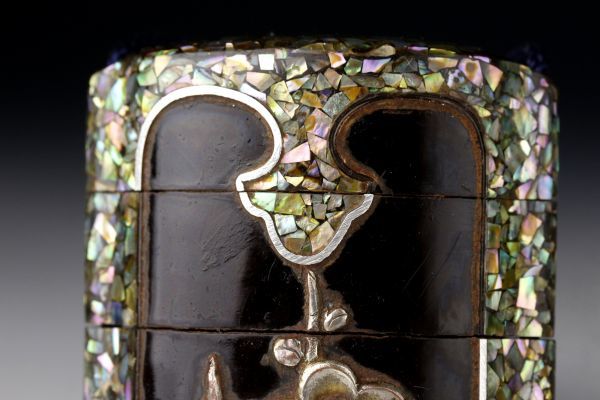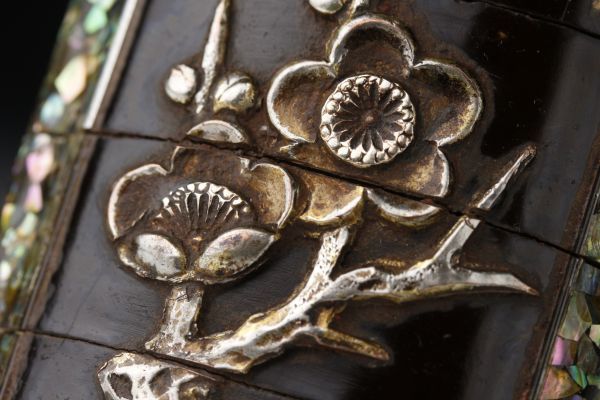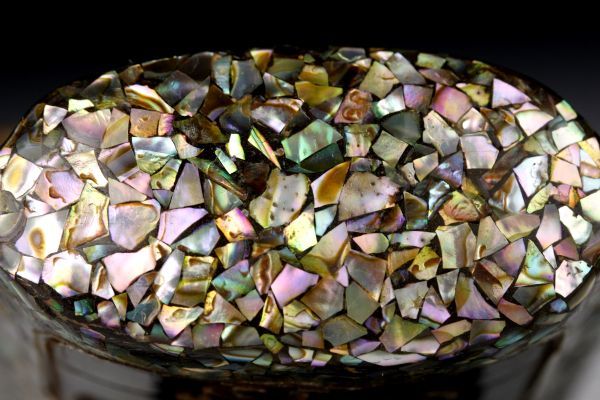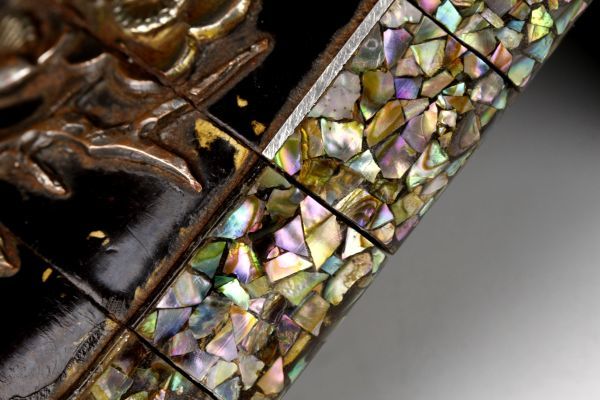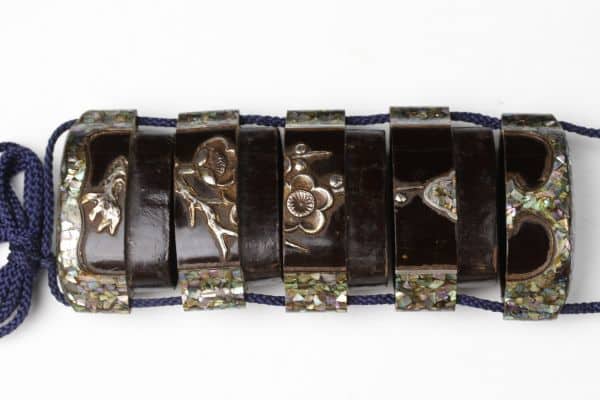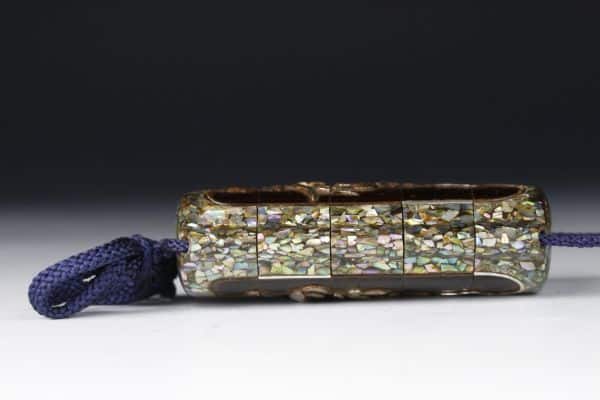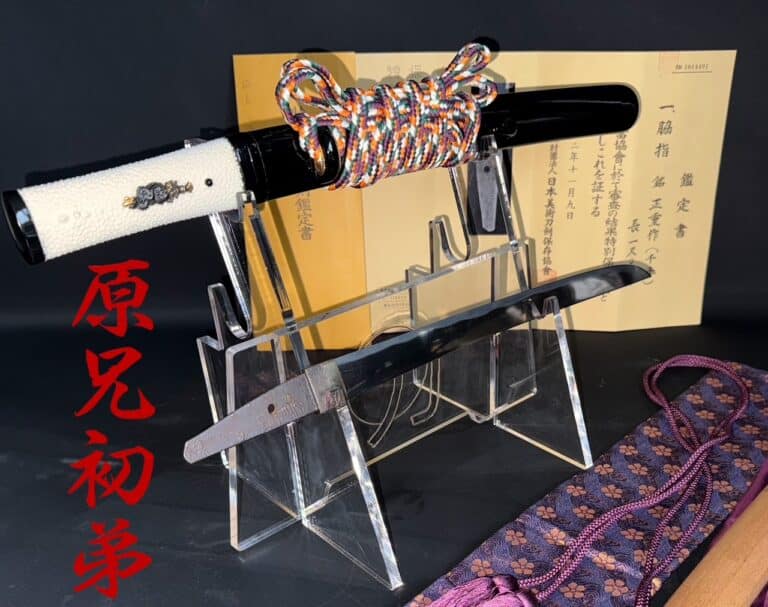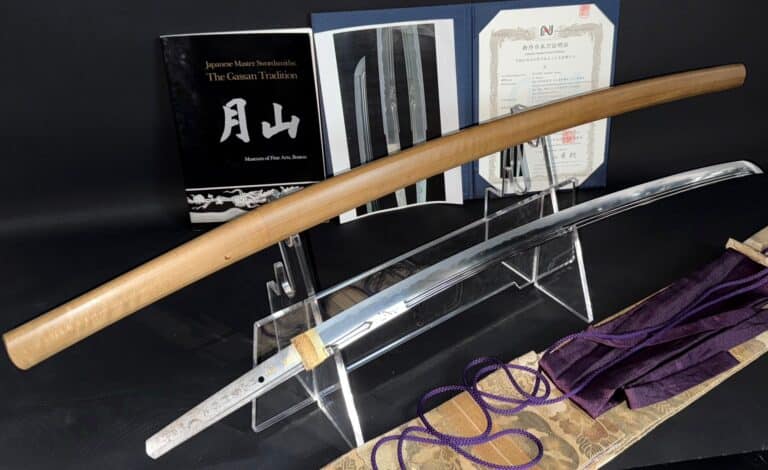Description
Explore the allure of a rare 1735 Japanese Inro, a captivating relic from the Edo Period. Crafted as a decorative obi-hanging case, this exquisite piece seamlessly blends artistry and functionality.
During traditional Japanese times, where clothing lacked pockets, ingenious solutions emerged. The Inro, meaning ‘seal’ or ‘stamp’ (印) combined with ‘basket’ (籠), served as a portable identity stamp and medicine container. Craftsmen of the Sengoku period initially designed it for travel, evolving into a fashionable accessory during the Edo period.
This particular Inro, skillfully made around 1735, is a testament to the craftsmanship of its time. Measuring Width 5cm × Length 8cm × Depth 2.5cm, it’s compact yet spacious. The box, with dimensions Width 18.5cm × Length 6cm × Depth 7.5cm, adds to its appeal.
Adorned with intricate lacquer work, this Inro stands out with its maki-e technique. The decoration extends beyond mere functionality, transforming it into a work of art. The design showcases the creativity of wealthy merchants and samurai who collected these pieces as prized possessions.
While there are light scratches, the overall condition remains remarkable. The accompanying photos provide a detailed glimpse of its charm.
Delve into the rich history of this Inro, where utility meets artistry, making it a timeless relic from Japan’s cultural heritage. Embrace the elegance of the Edo Period through this captivating piece, a harmonious blend of form and function.

